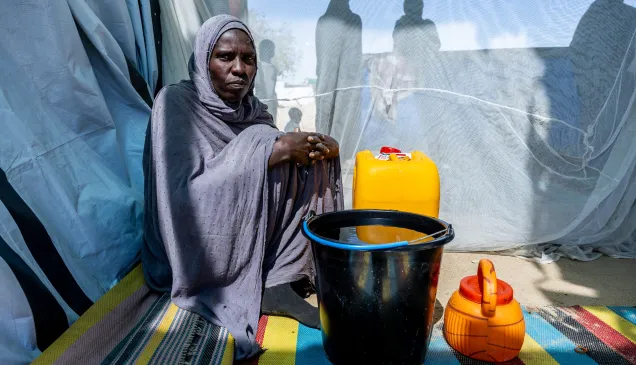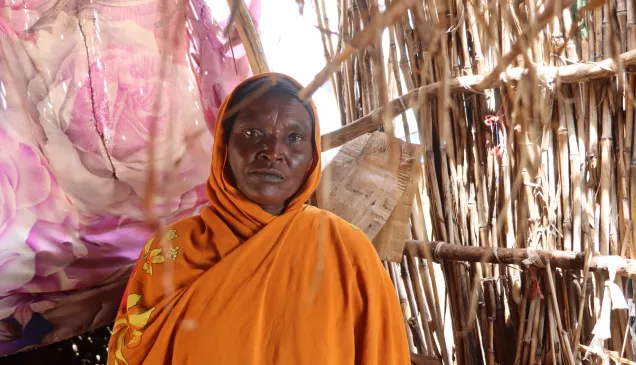Alaa Habeeb, ICRC physiotherapist, talks with Haj (a respectful way of addressing elders) Ahmed about his prosthesis.
Sudan: Helping people to walk again
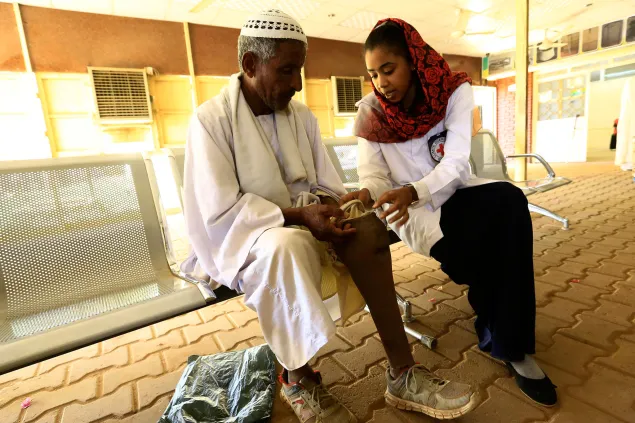
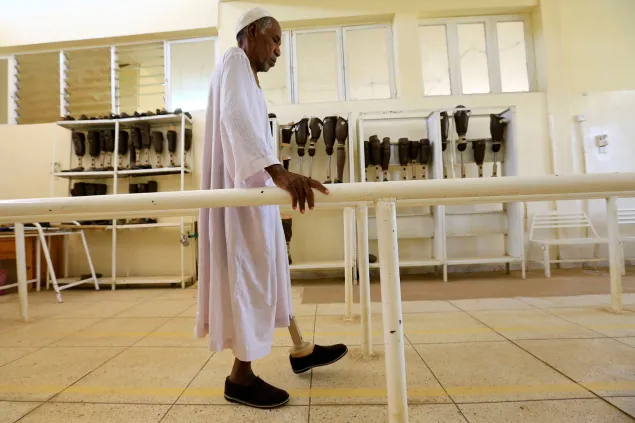
This man is learning to walk in his new prosthesis. This involves re-learning balance, shifting one’s weight from one leg to the other, and building strength and endurance.
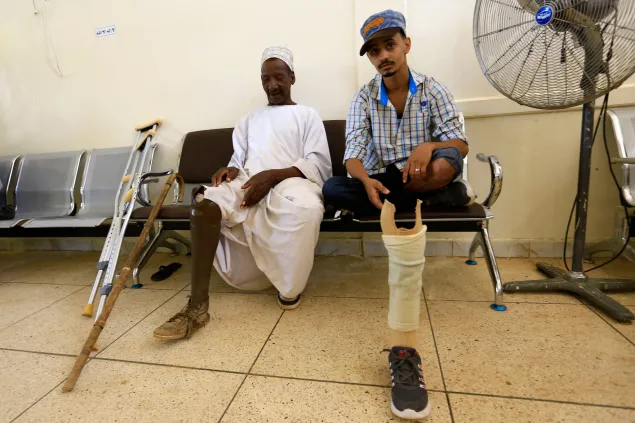
Two generations sit together. The older man lost his leg to diabetes, and the younger one during conflict in Yemen.
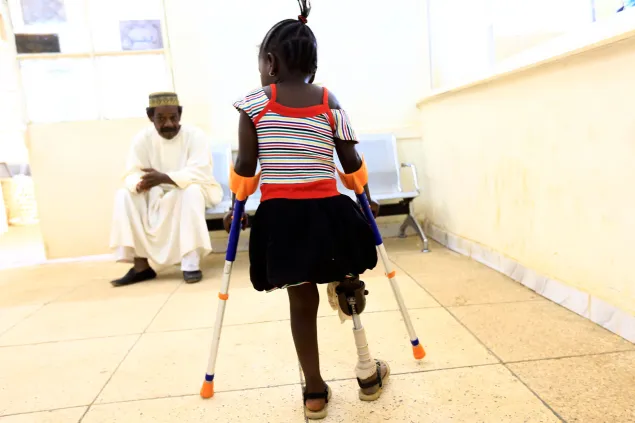
Safiya is learning how to walk again, but this time with a prosthesis. She lost her leg when a fragile wall in their home collapsed and fell on her.
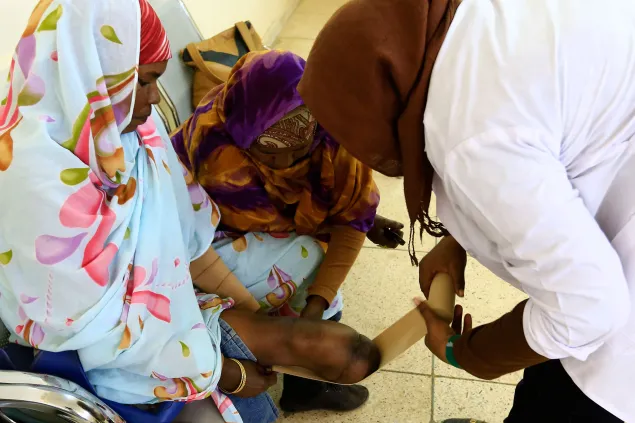
Arwa Hamid, NAPO physiotherapist, shows Wedad and her sister how to wrap her stump with a bandage to reduce swelling and make it fit comfortably into her prosthesis.
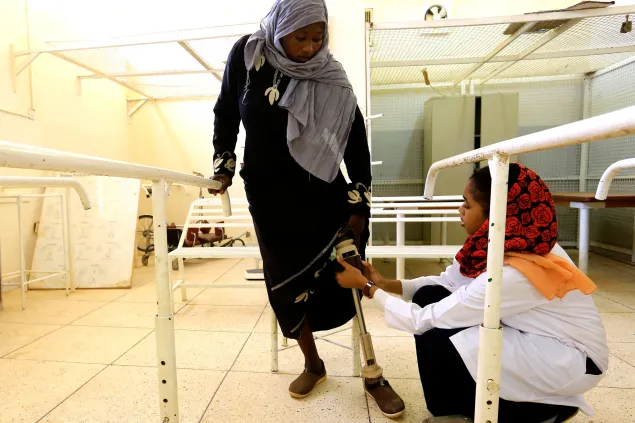
Alaa Habeeb, ICRC physiotherapist, instructs Arafa to keep her prosthetic knee locked on her first day of training with her new leg. These initial training sessions focus on confidence-building and getting comfortable.
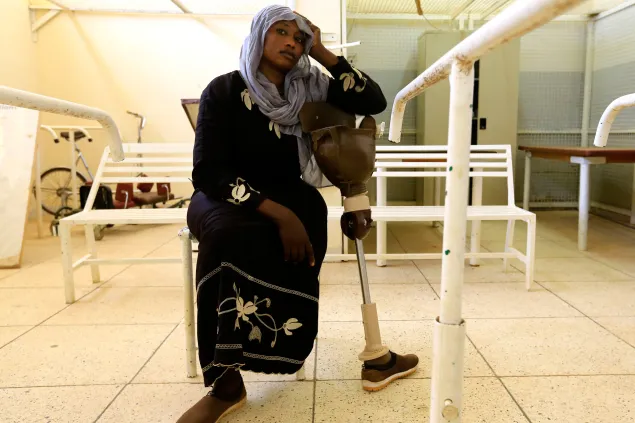
Arafa had bone cancer, but her body did not respond to treatment. The doctors were forced to amputate. Less than a year after the operation, she is now learning to walk again.
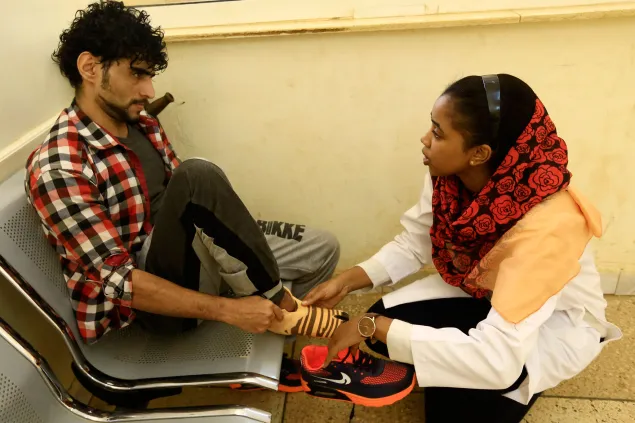
Accepting the loss of a body part is one of the hardest aspects of rehabilitation. Bassam finds it difficult to accept wearing a prosthesis, a common first-time reaction. Alaa Habeeb, ICRC physiotherapist, explains that through training he will be able go back to doing nearly all the things he used to do.
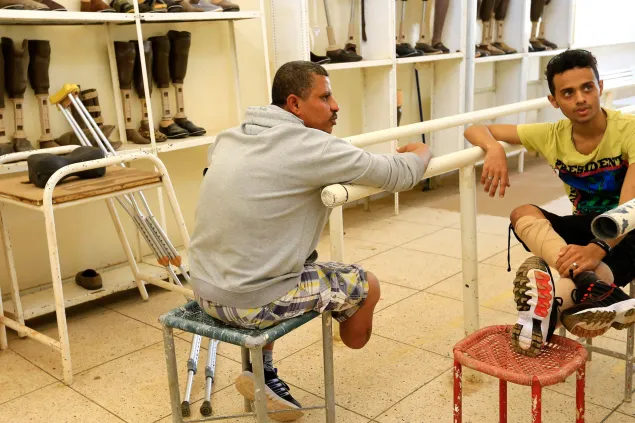
These men lost their legs in conflict in their country, Yemen. They look forward to returning to their families, once they are able to walk again.
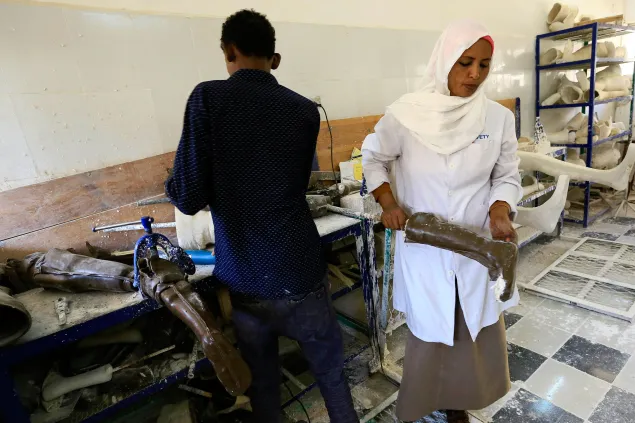
Technicians are hard at work in the prosthetic workshop.
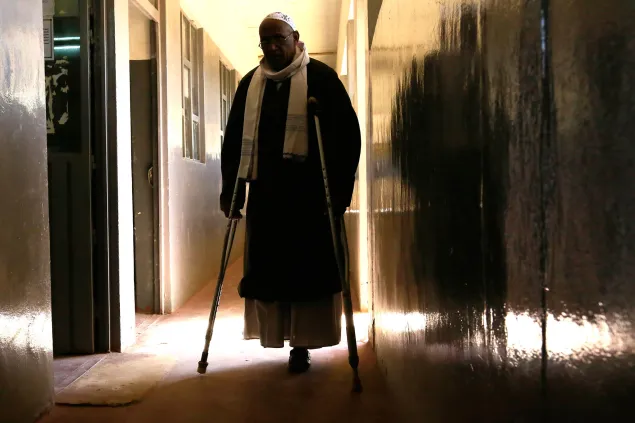
Haj Gasam uses crutches while he waits for his new prosthetic leg to be made.
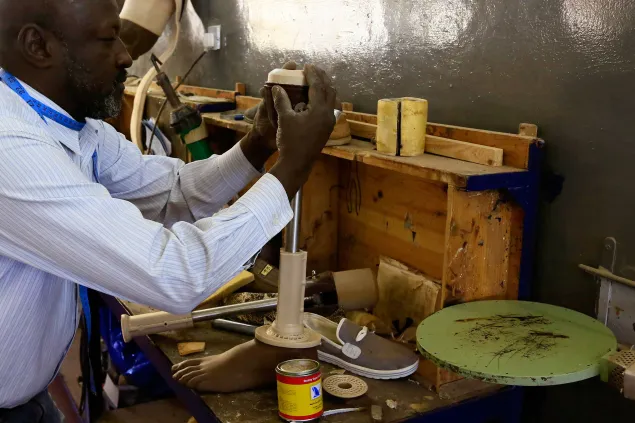
Mahmoud Malik, ortho-prosthetist, is assembling an artificial limb in the workshop.
“I have been working here for 24 years now, this place is a part of me,” he said.
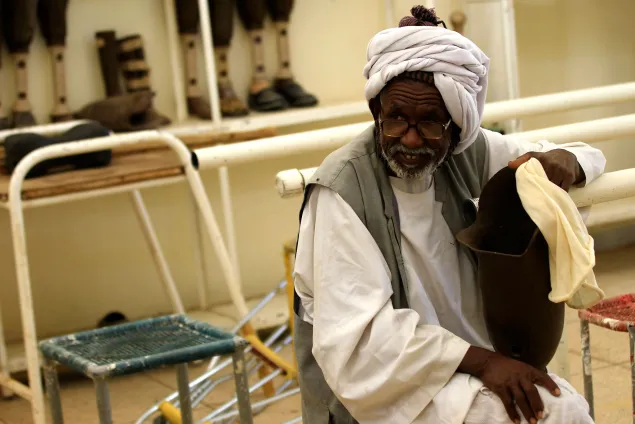
Haj Mohamed takes a short break between physiotherapy exercises.
The ICRC works on improving access and quality of services available to people with disabilities, by providing technical and material support to centres nationwide run by the National Authority of Prosthetics and Orthotics (NAPO), and as to the Khartoum Cheshire Home, a children's rehabilitation programme in Khartoum.
While the physical rehabilitation programme was launched to support victims of armed conflict, today people seeking assistance in NAPO also include victims of diabetes, Madura foot and road accidents. The ICRC has been supporting physical rehabilitation services in Sudan since 1990.

